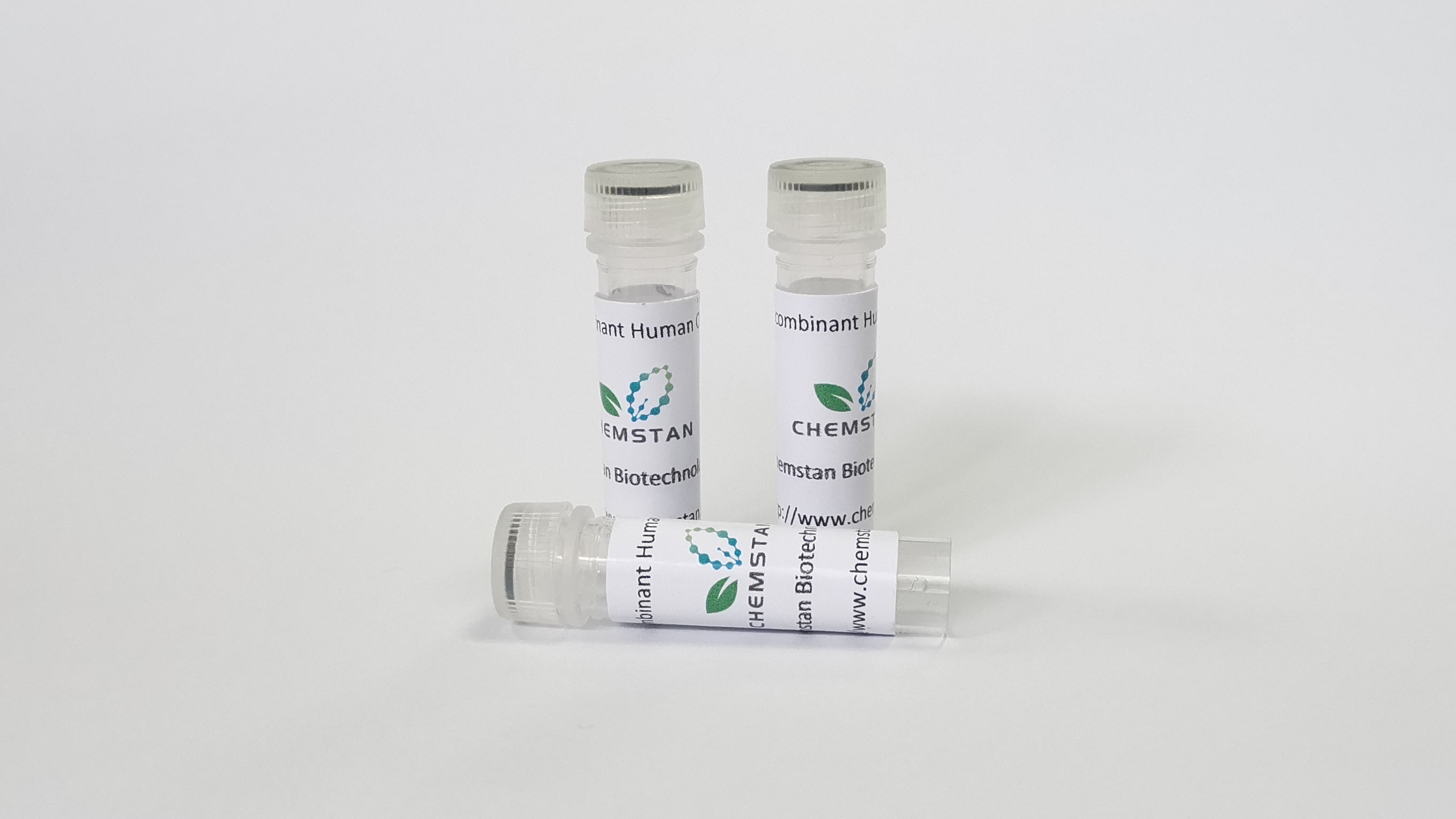
瀏覽量: 57
- 產(chǎn)品名稱: Recombinant Human TNFRSF9 protein
- 產(chǎn)品貨號: CSP00196
- 貨期: 現(xiàn)貨
- 價格與訂購: 1800
- 數(shù)量:
庫存: 100
- 規(guī)格: 50μg 100μg 1mg
- 產(chǎn)品信息
- 如何訂購
概述(Summary)
英文全稱
Recombinant Human TNFRSF9 protein
純度(Purity)
>90% as determined by SDS-PAGE
內(nèi)毒素(Endotoxin level)
Please contact with the lab for this information.
蛋白構(gòu)建(Construction)
A DNA sequence encoding the human TNFRSF9 (Leu24-Gln186) was fused with His tag
Accession #
Q07011
表達宿主(Host)
E.coli
種屬(Species)
Homo sapiens (Human)
預測分子量(Predicted Molecular Mass)
19.19 kDa
制劑(Formulation)
Supplied as solution form in PBS pH 7.5 or lyophilized from PBS pH 7.5.
運輸方式(Shipping)
In general, proteins are provided as lyophilized powder/frozen liquid. They are shipped out with dry ice/blue ice unless customers require otherwise.
穩(wěn)定性&儲存(Stability &Storage)
Use a manual defrost freezer and avoid repeated freeze thaw cycles.
Store at 2 to 8 °C for one week .
Store at -20 to -80 °C for twelve months from the date of receipt.
Store at 2 to 8 °C for one week .
Store at -20 to -80 °C for twelve months from the date of receipt.
復溶(Reconstitution)
Reconstitute in sterile water for a stock solution.A copy of datasheet will be provided with the products, please refer to it for details.
背景(Background)
背景介紹
CD137 (also known as 4-1BB) is a surface co-stimulatory glycoprotein originally described as present on activated T lymphocytes, which belongs to the tumor necrosis factor (TNF) receptor superfamily. It is expressed mainly on activated CD4+ and CD8+ T cells, and binds to a high-affinity ligand (4-1BBL) expressed on several antigen-presenting cells such as macrophages and activated B cells. Upon ligand binding, 4-1BB is associated with the tumor necrosis factor receptor–associated factors (TRAFs), the adaptor protein which mediates downstream signaling events including the activation of NF-kappaB and cytokine production. 4-1BB signaling either by binding to 4-1BBL or by antibody ligation delivers signals for T-cell activation and growth, as well as monocyte proliferation and B-cell survival, and plays an important role in the amplification of T cell-mediated immune responses. In addition, CD137 and CD137L are expressed in different human primary tumor tissues, suggesting that they may influence the progression of tumors. Crosslinking of CD137 on activated T cells has shown promise in enhancing anti-tumor immune responses in murine models, and agonistic anti-CD137 antibodies are currently being tested in phase I clinical trials. Soluble forms of CD137 (sCD137) are generated by differential splicing. sCD137 can bind to CD137 ligand to antagonize the costimulatory activities of the membrane-bound CD137 and reduce T cell proliferation and IL-2 secretion.
分子別名(Alternative Names)
Tumor necrosis factor receptor superfamily member 9,4-1BB ligand receptor,CDw137,T-cell antigen 4-1BB homolog,T-cell antigen ILA,CD137.
Note
For research use only .

 地 址:
地 址: 產(chǎn)品銷售:
產(chǎn)品銷售: E - mail :
E - mail : 郵 編:
郵 編:
 Amily
Amily


